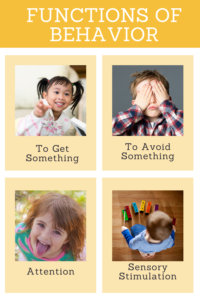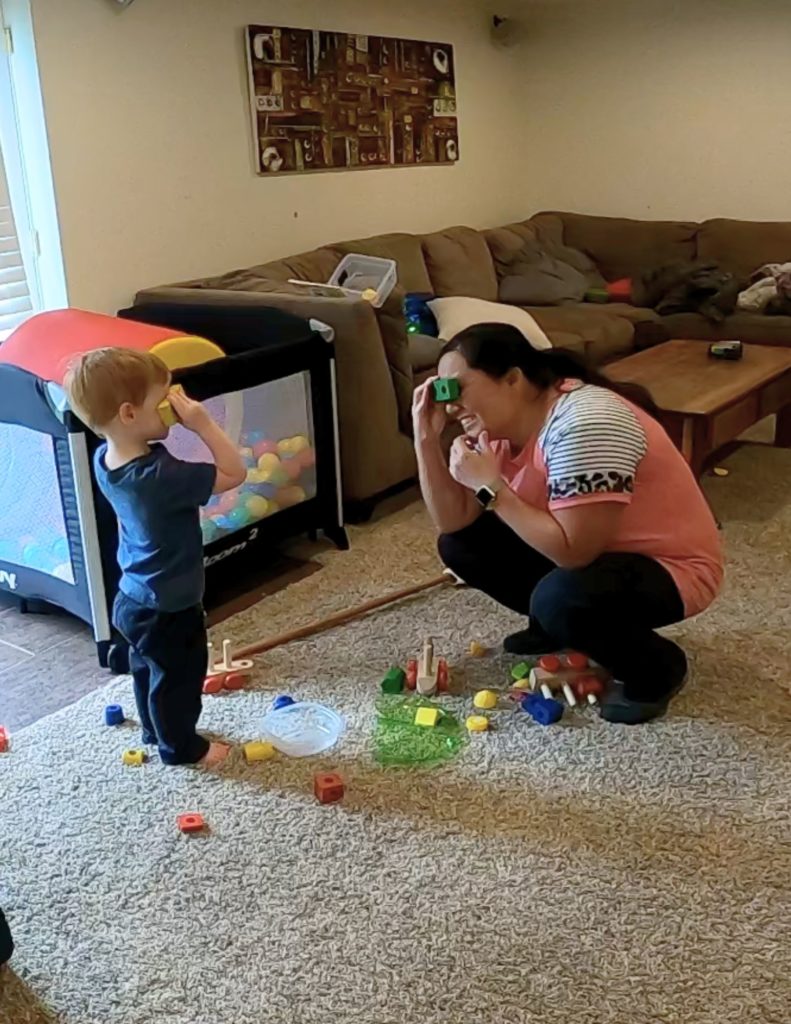Why do we behave the way we behave? I don’t know if you’re like me, but there are occasions when I can’t figure out why I’m doing what I’m doing. And yet, we’re supposed to somehow figure out why our kiddos are doing what they’re doing. This doesn’t only apply to kids with autism, but to most kids. However, autism throws in a whole other dimension, and sometimes makes it more difficult to figure out the reasons why. Because what makes sense to them doesn’t always make sense to us.
I will teach you what I’ve learned through my education, and then we’ll go through a couple scenarios to test it out.
First off, when we say “misbehave” or “difficult behaviors,” I just want to point out that it’s all relative. What is “misbehaving” to you may not be “misbehaving” to me and vice versa, we all have our own definitions of what a “tantrum” is. This is one reason why it’s important to define what the behavior looks like. Instead of saying “he was having a tantrum” we would say “he hit his head against the wall and started pulling his hair out.” That definitely gives us more information, and it is objective.
Generally there are 4 reasons why people display “difficult behaviors”
- To get something
- Something tangible
- Their way
- Attention
- Adult attention
- Peer attention
- Escape
- Activity
- Task
- Sensory Stimulation
- Self-reinforcing
 First Example: Refusing to eat
First Example: Refusing to eatThe antecedent (what happened right before the behavior): He was given his breakfast
The consequence (what happened right after the behavior): He was continually asked to eat by the staff (attention)
D) He wanted his belt
Why is it important for us to know the reasons why someone is acting the way they’re acting? Mainly because it is our way of helping that person. We want to help prevent them from going through the stress of having these behaviors, we want to help teach them how to respond or request more appropriately, and we want to help them to learn how to cope and get out of those behaviors without harm.
Some moments you’ll want to be careful of what you’re reinforcing.
In this instance, I wasn’t concerned about reinforcing his behavior of not eating by giving him a belt, it was our fault that it wasn’t in his closet. Plus, I would have given him 5 belts if it meant he would eat. His health was getting that bad.
- To get something
- Here you are in a room full of everything anyone could ever want. Self control is difficult for some of us, and if you don’t have a concept of money, it’s even more difficult 🙂
- Attention
- How can you not get attention when you’re screaming in a room full of strangers? The key would be teaching how to get positive attention rather than negative attention. Which is not as easy one may think.
- Escape
- I sympathize with the kiddos that hate shopping. I hate it too, and I often times want to escape.
- Sensory
- As you will see in my past post. The grocery store is full of sensory overload.





